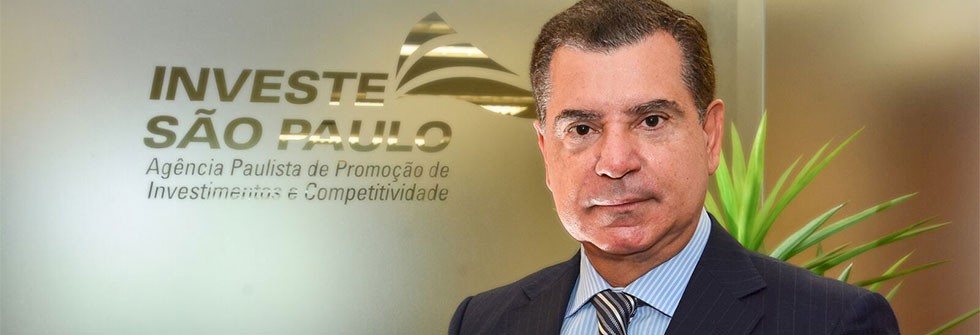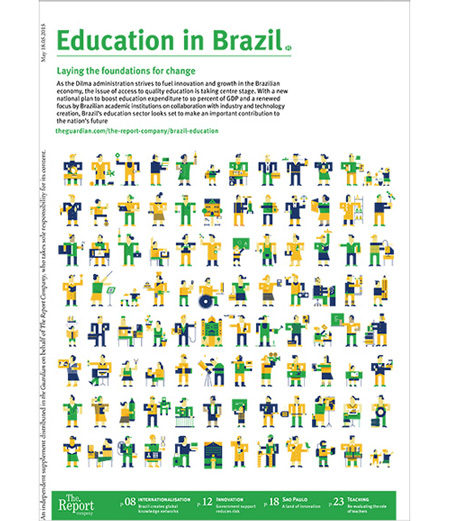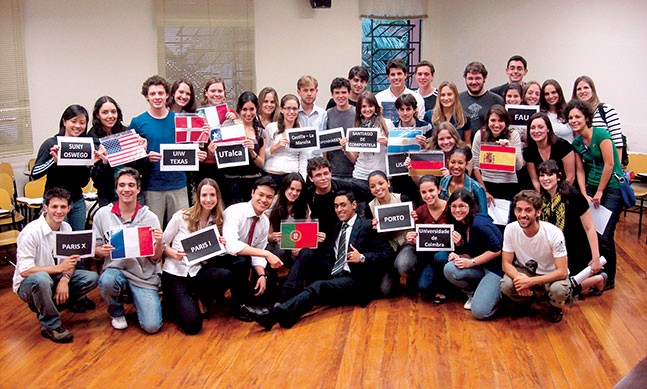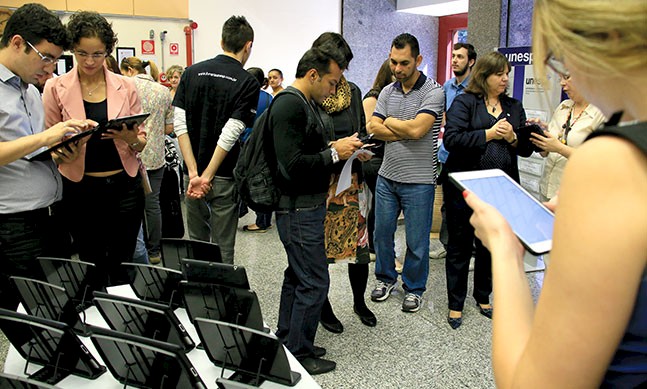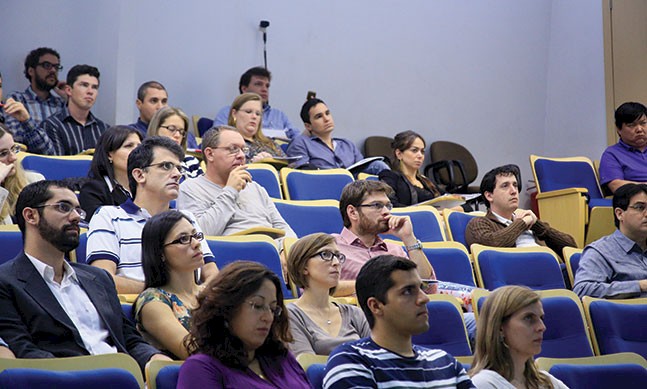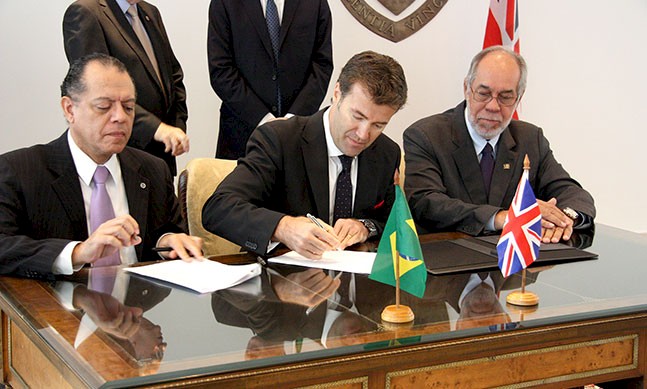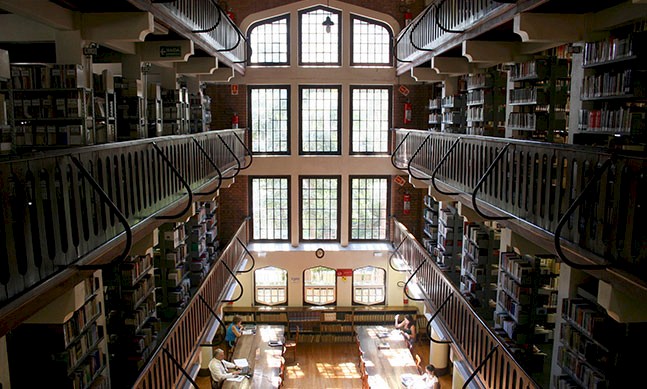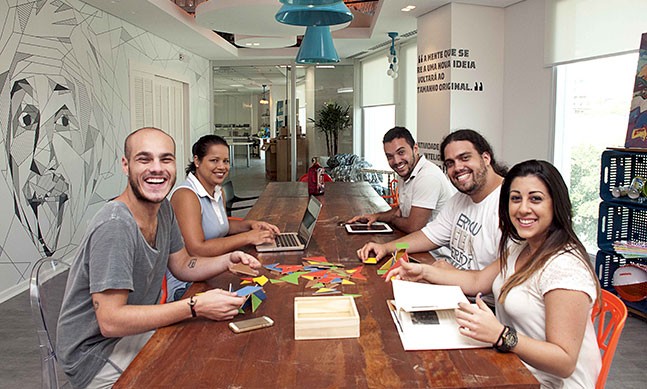With vast experience in the areas of civil construction and infrastructure, Juan Quiros assumed the presidency of Investe Sao Paulo in January 2015. Intent on steering focus towards attracting a greater number of mid-sized companies, Quiros spoke to The Report Company about his role in promoting the state and attracting prospective investors
The Report Company: How do you see the current state of Sao Paulo’s economy, both in a national and regional context? Are the challenges here the same as in Brazil as a whole?
Juan Quiros: Sao Paulo has a country-sized economy with twice the GDP of some Latin American countries, and also has the complexity of an entire country. Sao Paulo's cultural base is very interesting because of historic immigration, so our business sphere also speaks a language the world understands.
Sao Paulo represents the best of Brazil in terms of technological innovation and products with added value. Embraer exports airplanes, for example, and we are an international hub, the continent’s capital of banking. This is an island of prosperity and a breeding ground for opportunities in industry, services and tourism. The state as a whole also includes economical poles of development such as Campinas, dubbed Brazil’s Silicon Valley and home to Viracopos airport, and is blessed with a first-class workforce and a great concentration of universities, research facilities and technology centres.
TRC: What changed in Brazil to make the international media, so confident in the country’s potential a few years ago, begin to doubt its economic prospects?
JQ: I am a technician, not a politician, but it is clear that Brazil is going through a very positive transformation. Every transformation is painful, however. We are born, but we don't stay the same size, and growing is painful. Brazil is having growing pains and as it grows, the economy adjusts, society follows, and there is a growing sense that things need to change, that efficiency needs to improve and we need not look at the future of Brazil, but build the present.
TRC: What has been the impact of that change in outlook for investors that have already announced their plans here?
JQ: It depends on the investor. People that are investing here know Brazil. They know that they are investing for the short, the mid and long-term in a growing consumer market. It should be mentioned that in the last eight or ten years, around 65 million people in Brazil have become consumers. Major companies will be making investments here because they know, for example, that the mobile phone market will be exceptional in Brazil, that it can be the best market in the world. Investors are not looking for quick and short term returns on investment, they are looking to the future. They look at how vigorous the country is and at the adjustments that are being made in a democracy that is still nascent.
“It is clear that Brazil is going through a very positive transformation. Every transformation is painful, however.”Tweet This
TRC: Where are the state’s golden opportunities?
JQ: Everywhere. In Brazil, we are used to large investments; we've grown accustomed to talking in terms of billions. One of the directives of our vice-governor, Marcio Franca, is to seek investments and support small and mid-sized companies. Large companies have direct access to the governor, but what about mid-sized companies that will invest 40 or 50 million? We have improved access for these companies.
It is interesting to note that Sao Paulo has been establishing itself as a services hub. Little by little, industries are migrating to other cities in the state. Today, every company that wants to make a large investment looks to the interior of the state first and for a number of reasons: cheaper land, availability of skilled workers, good access to the factory, logistics such as excellent roads, the existence of an international airport (such as Viracopos that will become the largest cargo airport in Latin America), and the existence of regional airports. The latter will facilitate the access to other cities in the state and the trading of goods and services.
TRC: The city mayors are fighting one another to attract investors and it seems that they all claim to have the best logistics and the best workforce. How do you help investors work out where the best place is for their money?
JQ: All of the mayors are right; they do have great logistics, infrastructure and the backing of the state government. The first thing we did here was to ask each mayor what their city’s vocation was. Natural vocations increase competitiveness, so instead of investors having to look at the state as a whole, they only need look at the places that are most geared towards serving them. By vocation I mean having the skilled workers, the right suppliers, production chains, access, logistics and market. People put their money on their priorities, the market. Investors can come to us because we really know our market and the public institutions that are often required to remove blocks for investment. We'll take them to the places that most fit their needs, so they can make the right decision.
TRC: Investe Sao Paulo was created to link investors with these opportunities. When the institution was headed by Luciano Almeida, more than 62 companies announced investments. What changes will you bring to build on that number?
JQ: In my business life, I discovered that you have to continue or improve the things that are working. Luciano did great work here and I am lucky to have the team I have today and to have “had the support of my predecessor. The moment now is different, however, and the economy has changed.
In the recent past, Investe Sao Paulo worked within an environment of national and international economic vigour, but now that we are going through a transition, we have to adapt the agency and to make an even greater effort. Working with one client that brings one billion reals in investment is totally different from working with ten clients that bring in 100 million. We will have to work harder and the agency will have to communicate better with the market. That's what will make us successful. We have skill, knowledge and a great foundation, but we still have to communicate better with the market to get small and mid-sized companies involved.
Every CEO that I have spoken to believes in Brazil. Crises are the best moments for investments. The CEO of Foxconn, which has almost two million employees, said that even if lightning struck him, he would still invest in Brazil. We cannot base our decisions on cyclical factors; every country goes through them. We have to base our decisions on opportunities, of which we have plenty. Sao Paulo is the entryway for opportunities.
“Every CEO that I have spoken to believes in Brazil. Crises are the best moments for investments.”Tweet This
TRC: What are the priorities at Investe Sao Paulo for the next five years?
JQ: Our strategic plan includes one specific goal: to help promote exports in the state of Sao Paulo. Sao Paulo is already responsible for a significant percentage of the country's exports and its success ripples throughout the country. It determines how well Brazil does. So we believe Investe Sao Paulo has to take on new responsibilities and in the next five years, the agency will be behind every opportunity for growth, making things easier for investors. We can help with factory production, with exporting products, with getting skilled workers, innovation. There's much more to come from us.
TRC: How well do you think Sao Paulo is perceived overseas?
JQ: One of the secrets of success is being able to see our flaws. I believe that Brazil's greatest problem is its lack of communication with the world. When you go abroad these days, you see a lot of advertisements from countries that have a smaller GDP than Brazil, but that sell themselves as friendly toward tourism and investments. Ecuador is doing that, for instance, but we don't see Rio de Janeiro, Sao Paulo, Recife or Salvador doing that. We are going to sell Sao Paulo outside of the country through international events, especially those that can attract investors. We are going to focus on private equity and international funds that are the opinion makers, the media and online.
“Sao Paulo is already responsible for a significant percentage of the country's exports and its success ripples throughout the country. It determines how well Brazil does.”Tweet This


